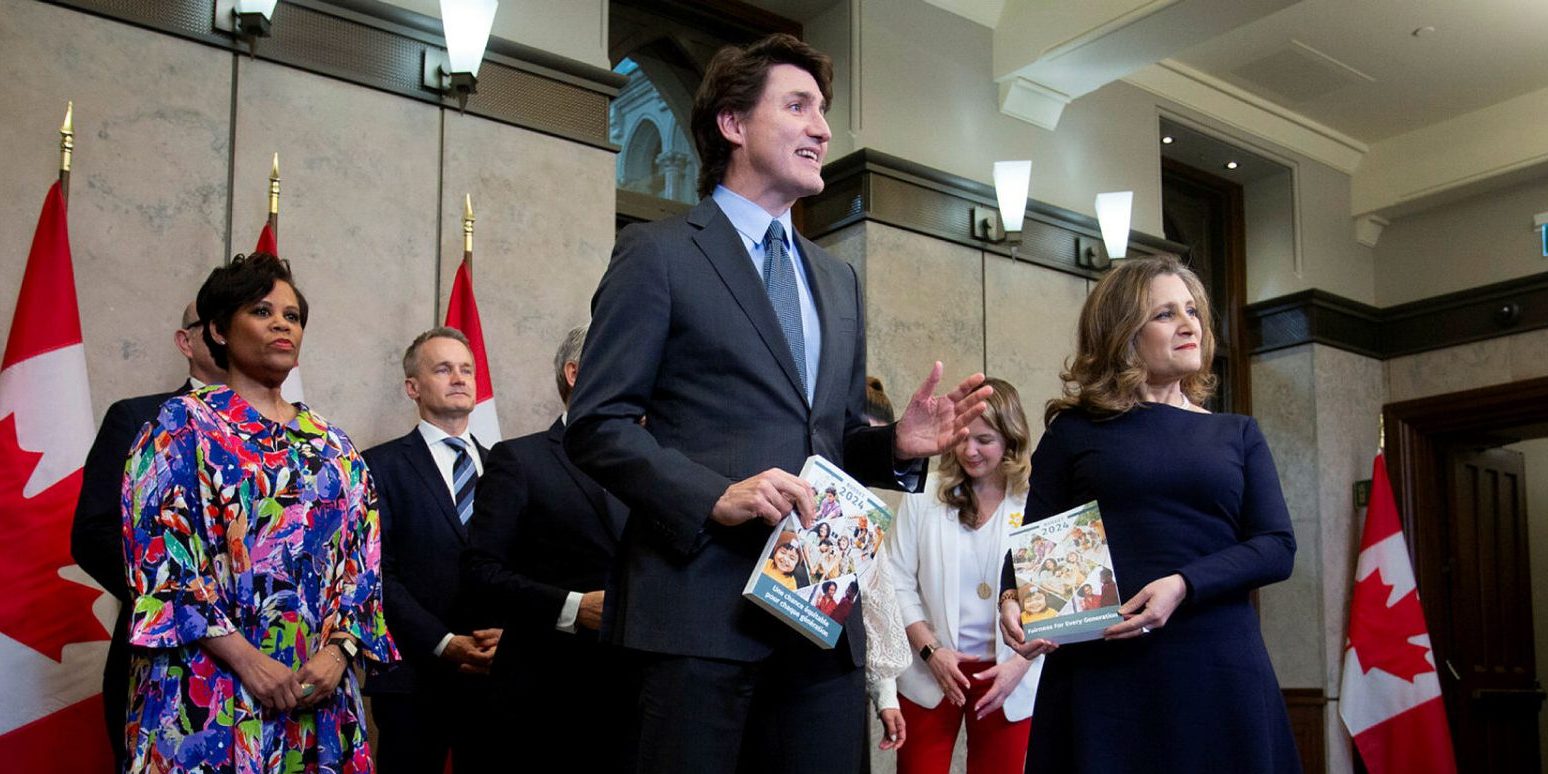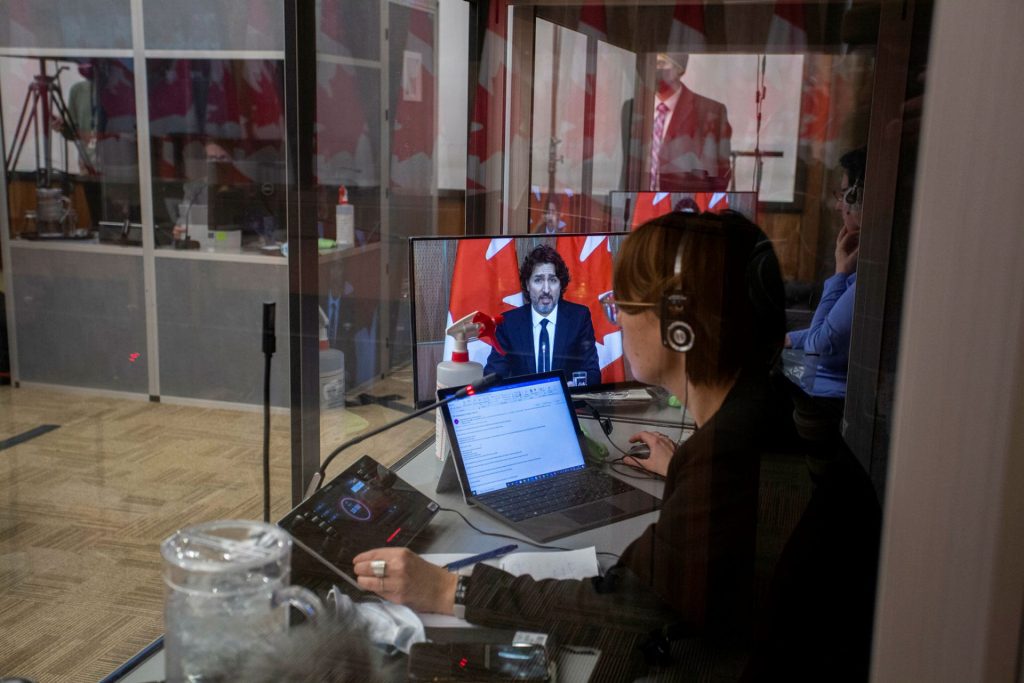New funds for Translation Bureau largely aimed at existing efforts to tackle federal interpretation shortfall

This spring’s budget included more than $35-million in funding for the federal Translation Bureau with the stated aim of helping it boost interpretation capacity and establish a scholarship program, but there’s little new in the details for how it hopes to do so.
Already coming under strain amid a global shortage of qualified interpreters prior to the pandemic, the Translation Bureau has grappled with an interpreter shortfall since the shift to hybrid parliamentary proceedings prompted by COVID-19 put added pressure on the workforce. Higher levels of virtual participation led to increased reports of injuries. This caused available interpretation hours to dwindle due to both medical leaves and measures introduced to try to protect the workforce, such as reducing shift hours, and increasing the number of interpreters required per shift.
Interpretation capacity issues have put constraints on parliamentary work, and while there are now fewer reports of House or Senate committee meeting cancellations as a result of a lack of available interpretation resources, parliamentary work continues to be affected.
With a hard line now drawn on the finite number of available interpretation hours, late-night House sittings can eat up available capacity, and some parliamentary meetings—like those of regional caucuses or special interest groups—have been starved of interpretation resources as a result. Last fall, the House of Commons began phasing in use of remote simultaneous interpretation, which enables interpreters to work from outside the National Capital Region, and was estimated to add capacity for eight new events per week, up from 57, or an additional 16 hours of interpretation services, up from 160.
While the Senate has returned to fully in-person proceedings, the House is now a permanently hybrid institution.
But beyond the added layers of risk posed by interpreting virtual participants, injuries can still occur in person, as seen in April when an interpreter covering the House Foreign Affairs Committee suffered what’s been described as a “significant hearing injury” from feedback caused by an earpiece device getting too close to a microphone in the committee room, known as the Larsen effect. As reported by the Canadian Press, the interpreter went on leave as a result of the injury, and the incident led to a federal Labour Program order calling for changes to how meeting rooms are oriented. In response, stickers have been added to committee rooms to guide MPs on where to place earpieces, and House Speaker Greg Fergus (Hull–Aylmer, Que.) issued a new memo to MPs regarding use of microphones and earpieces.
Injuries aside, the bureau’s interpretation workforce is aging, and there aren’t enough qualified new graduates each year to keep up with attrition. Last year, the then-head of the bureau warned MPs that there’s “no miracle recipe to solve” the interpretation shortage.
Nonetheless, the 2024 federal budget tabled by Deputy Prime Minister and Finance Minister Chrystia Freeland (University–Rosedale, Ont.) on April 16 committed new funds for the bureau, recognizing that “[l]abour shortages and resource constraints have strained translation services, putting Canadians’ ability to engage in democracy at risk.”

Specifically, the budget outlined $31.9-million in new funding over five years starting in 2024-25, and $3-million annually going forward, for the Translation Bureau overseen by Public Services and Procurement Canada (PSPC) to “expand translation and interpretation capacity in Parliament and uphold Official Languages Act requirements.” Additionally, it committed $1.1-million over five years starting in 2024-25, and $200,000 annually going forward, for PSPC to “establish a scholarship program” to help “train the next generation of official language interpreters,” noting funds for the program will be reallocated from within “the department’s existing resources.”
Asked about both funding envelopes, few new details were available.
The bureau got temporary funding in 2021-22 to help support a hybrid Parliament, and in an email response PSPC said the new funding “acknowledges that Parliament will remain hybrid and temporary funding levels must be extended to support this.” In 2021, the bureau was allocated $18-million over two years to help support a hybrid Parliament, $5-million of which was later “reprofiled” and spent in 2023-24.
Extra funding is needed in supporting a hybrid Parliament because the reduction of shift hours to try to protect interpreters means “more interpreters are required to cover” meetings, incurring higher costs, PSPC said. On top of that, PSPC noted freelance interpreters—who currently cover roughly 40 per cent of the bureau’s workload—“have increased their rates in recent years.” The department has also commissioned a number of expert studies to try to better understand the risks facing interpreters.
This year, the bureau is expecting reports commissioned from Western University on “the perceived quality of sound at the House of Commons”; from Laval University on the “quantity of sound” being received by Hill interpreters; and a final report from the University of Ottawa “on the evolution of interpreter hearing health over two years.”
“Further studies will depend on the inquiry lines suggested by the authors of these latest studies, and other investigations that might be deemed appropriate to support interpreter health and safety,” said PSPC.
The more than $30-million in new funding will also “be used to continue the provision of translation services,” and to “ensure continued support to various capacity initiatives for interpretation implemented by the Translation Bureau,” added PSPC, pointing to a statement from last fall outlining work it had done to date to try to boost capacity. That list includes existing partnership agreements signed with the only two universities in Canada currently offering a master’s degrees in conference interpretation—the University of Ottawa and York University in Toronto—and efforts to engage other universities about offering an interpretation program of their own. As also noted in the statement, the bureau increased the frequency of its accreditation exam to two times per year, and it continues to extend job offers to all new qualified graduates, and “explore recruitment opportunities abroad.”
As for the scholarship program, its development is still in the early stages, but PSPC said the bureau will implement it “as soon as possible in co-operation with the academic sector and other federal organizations.”
“Discussions are beginning with potential interdepartmental partners towards the program. An implementation plan is expected to be in place in the coming months.”
The Hill Times






 LICENSING
LICENSING PODCAST
PODCAST ALERTS
ALERTS













